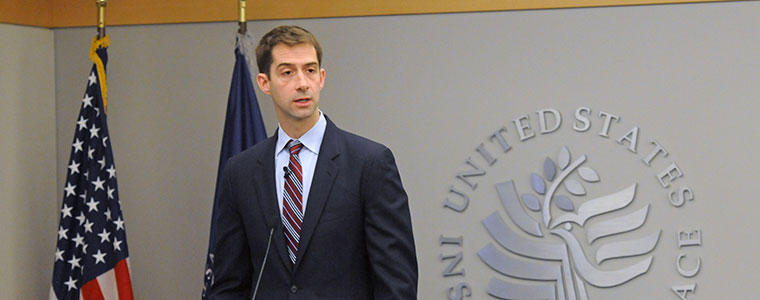Advancing U.S.-Afghan Ties: A discussion with Senator Tom Cotton (R-Arkansas)
A USIP Congressional Newsmaker Series Event
Read the Event CoverageUSIP and the Alliance in Support of the Afghan People were pleased to host Senator Tom Cotton (R-AR), a U.S. Army veteran who served in both Afghanistan and Iraq and a newly elected member of the U.S. Senate, to provide his views on the shape of future U.S.-Afghan relations.

The election of a reformist national unity government in Afghanistan and the signing of the Bilateral Security Agreement with the United States have restored bilateral relations that had badly deteriorated under President Karzai. The Afghan government, facing huge economic and security challenges, has requested significant and sustained assistance from the United States and the international community over the next decade. The United States has committed to provide civilian and military support up to the end of 2016. Several weeks before an anticipated visit by President Ashraf Ghani and Chief Executive Officer Abdullah Abdullah, the question of future of U.S.-Afghan relations becomes more critical. USIP and the Alliance in Support of the Afghan People were pleased to host Senator Tom Cotton (R-AR), a U.S. Army veteran who served in both Afghanistan and Iraq and a newly elected member of the U.S. Senate, who provided his views on the shape of future U.S.-Afghan relations. Senator Cotton serves on the Armed Services Committee and the Select Committee on Intelligence.



